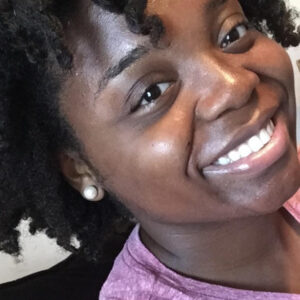
The discussion of mental health in the Black community has been a taboo topic until recent years. To deepen the conversation of mental health in the Black community, Black people need to be educated on the ways and services that can be provided once they identify that there’s a problem but unfortunately some may have difficulty identifying the problem.
Veteran Mental Health Specialist and Licensed Professional Counselor, Keva Ellis said, “There is a big stigma about seeking therapy. People think it is for crazy people. People think they are seeing a shrink. People fear judgment, so they end up keeping those things inside. Through education and word of mouth, people will become more aware of their mental health.”
To go deeper, the conversation needs to be first facilitated by a professional. Black mental health specialists and therapists are great aids and doctors for more than just professional help but for relatability purposes as well.
They tend to be more aware of specific issues that plaguethe Black community that have been passed down from generation to generation and know how to decipher it a little bit better. Combined with their professional training, they may be able to make more accurate decisions and give effective advice for Black people’s mental health.
Black business owner of Love Within Therapeutic & Counseling Services, LLC, and Licensed Associate Professional Counselor, Chelsea Ward said, “Black people’s mental health resulted in smoking, drug addictions, alcoholism to try to hide what is inside and to suppress their trauma.”
Past and current violence, oppression, systemic racismand thedehumanization of Black bodies plays a constant “drum” on the Black mental estate. These adversities account for the high statistics of depression, anxiety and addiction within the Black community. In return, Black people are leading invarious illnesses and diseases such asdiabetes, heart disease and hypertension.
Ward also mentioned that a lot of Black men with mental illnesses are in prisons due to lack of funding for mental institutions and the prison system don’tknow where to put them.
Black men, in particular, have been socialized to suppress their feelings. Feelings are socialized to be a “feminine” characteristic. Years of suppressing traumas, feelings and emotions result in manyBlack men possibly feeling unheard, unloved and insecure.
Saturday was “World Mental Health Day ” and in my opinion, there wasn’t enough effective marketing and advertising to bring awareness to this important matter. It showed a lack of care and seriousness for the holiday which in result, showed how we still have a long way to go to destigmatize this conversation.
Twitter user @8plus9 tweeted, “Poor communication is inherited from parents or family members. They never talked about feelings, they yelled. They held onto secrets because they did not want to make things awkward. Break that toxic chain. Speak up!”
In many cases Black people aretaught to pray about issues and that prayer is the only way to get through it. Other times, Black people are conditioned since birth to think “whatever happens in this house, stays in the house!” When, most of them need some professional help in their households.
Black people, please see a therapist. Yes, prayer works but sometimes if not most times, speaking to a counselor really helpsto decode our feelings and emotions, where they stem fromand also effective tools and skills to get through the past and current trauma. Those skills and tools are to alleviate mental stress and to better communicate with yourself and others.